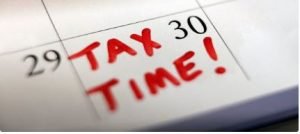
It’s that time of year. The time when we all start looking at our pile of receipts and mountain of tax forms with dread. When preparing your tax return, even a little mistake can cause problems. You could end up with a larger tax bill than you should, your refund could be delayed, or ever worse, you could get audited.

The best way to ensure the HMRC processes your return with no problems is to make sure your paperwork is error free. Here’s a list of the most common mistakes that could be costing you money:
1. Your maths
HMRC cites one of the most common mistakes every year as “basic maths errors”. This could be anything from mistakes with addition and subtraction to transferring a number incorrectly from one form to another. Either way, this will get you an immediate correction notice. Double and triple check that your numbers match on every form. Also, use a calculator for addition and subtraction, even if it seems simple. You may think you’re immune to this issue if you use tax preparation software, but that’s not entirely true. One finger slip and your initial numbers could be wrong, meaning every number thereafter is wrong as well.
2. You’re not educated on your tax liability
Small businesses have far more tax liability than when you filed as an employee. You need to be educated on all the taxes that could affect your business. Be aware of the types of Corporation Tax, Dividend Taxes, VAT and payroll taxes such as PAYE & NI)
3. You’re not filing as the right type of business
As a business, you have some options as to how you file. And each option, like sole trader, LLC, or a Company, all have different tax liabilities. Talk to LeeP Accountants of Huntingdon & Peterborough to make sure you’re filing correctly. And be aware that this may change as your business does. What was best for your startup probably won’t be the best for your business after 5 years. Filing as the wrong type of business for your revenue could up your tax bill by thousands.
4. You’re not keeping good records
Keeping track of your expenses, income, and payroll are all part of the proper record-keeping you’ll need to file your taxes. Not only will they help to ensure you don’t overlook legitimate write-offs, they will also come in handy if you ever get audited. You could easily lose deductions if you don’t have the receipts to back them up. So save those invoices, receipts, and and any other paperwork you may need, using a cloud accounting tool such as Quickbooks online can not only make this easier, it will also cut down on paperwork.
5. You’re forgetting some key information
This seems really obvious, but again, HMRC says this is one of the most common mistakes they see. This includes not filling out your NI number, or writing it down incorrectly, not including attachments, not including receipts for things like charitable donations and property tax, and not signing your forms when you’re done. After you’ve finished your taxes, walk away for a few days. When you come back to them any mistakes should be glaringly obvious. Making time to double check them before you send is an easy way to ensure HMRC doesn’t catch your mistakes for you.
